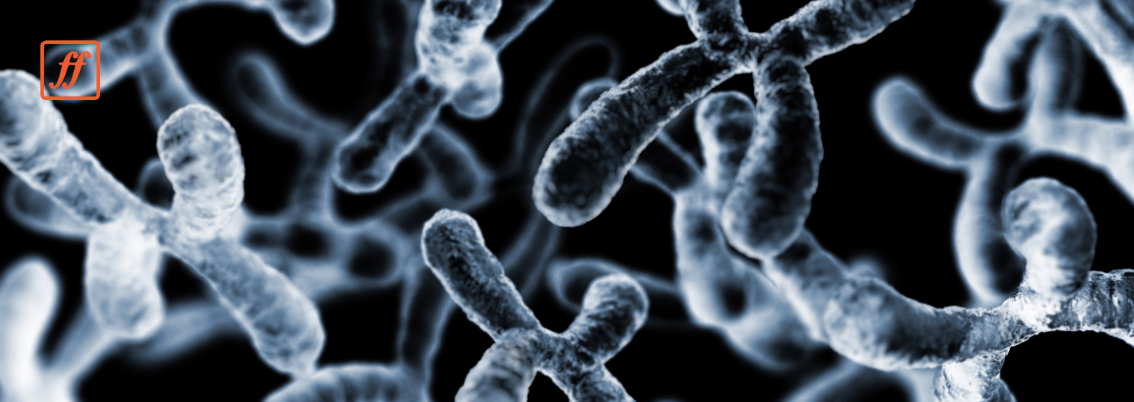Once merely seen as the determinant of biological sex, the Y chromosome is now emerging as a key player in men’s overall health. Mosaic loss of the Y chromosome (mLOY), the gradual disappearance of the Y chromosome from a subset of blood cells, poses serious health implications for aging men, potentially contributing to the stark lifespan gap between men and women.
Want to dive deeper? Listen to our related Spotify podcast exploring the connection between genetic aging and disease.
Understanding mLOY and Its Prevalence
The Y chromosome, fully sequenced only in 2023, is one of the smallest chromosomes, but it holds essential genes that regulate critical cellular processes beyond reproduction. mLOY occurs as men age, becoming significantly more common in older populations:
- ~6% prevalence in men aged 50-60
- Over 40% prevalence in men aged 80+
Primary risk factors include aging, smoking, and exposure to environmental toxins like air pollution and arsenic.
How mLOY Impacts Health
Emerging evidence strongly links mLOY to serious health concerns:
1. Compromised Immune Function
mLOY weakens the immune system by altering the expression of hundreds of immune-related genes. This makes men more susceptible to diseases, especially cancer, as Y-less cells produce proteins that impair critical immune responses.
2. Increased Fibrosis and Chronic Inflammation
Studies in mice reveal that cells lacking the Y chromosome promote fibrosis (scarring) in vital organs like the heart and lungs, fueling chronic inflammation linked to diseases such as heart failure and kidney disease.
3. Disrupted Gene Regulation
The loss of the Y chromosome removes vital genes like UTY, leading to extensive changes in gene regulation and contributing to broader genomic instability.
Health Risks Associated with mLOY
Research highlights alarming associations between mLOY and increased risks across various diseases:
- Cancer: Men with mLOY have higher rates of bladder, prostate, and lung cancers. Tumors lacking the Y chromosome grow faster and are more aggressive, partly due to impaired immune surveillance.
- Cardiovascular Disease: mLOY significantly increases the risk of heart disease, atrial fibrillation, and fatal heart attacks, with up to a 31% higher risk for those with extensive Y chromosome loss.
- Neurodegenerative Diseases: There’s an increased likelihood of Alzheimer’s disease, with studies indicating a sevenfold higher risk in men experiencing substantial Y chromosome loss.
- Other Conditions: Higher susceptibility to acute infections, infertility, and overall higher mortality rates.
Debates in the Scientific Community: Causation or Correlation?
While there’s robust data linking mLOY to health problems, the debate persists on whether mLOY is a direct cause or simply a marker of broader genomic instability. Despite arguments suggesting mLOY might be an incidental effect of aging-related DNA damage, animal studies and recent clinical data increasingly support direct causal relationships.
Future Directions and Possible Interventions
Considering the severity of mLOY’s impact, researchers advocate for:
- Regular Screening: Identifying mLOY through simple blood tests to pinpoint high-risk individuals.
- Potential Treatments: Exploring antifibrotic therapies and immune checkpoint inhibitors, particularly for cancers associated with Y chromosome loss.
- Lifestyle Adjustments: Reducing smoking, limiting exposure to toxins, and exploring dietary and sleep interventions to potentially slow mLOY progression.
Senescent cell-targeting therapies, like those used in our Reverse Aging Program, may help restore function in tissues affected by mLOY-related cellular damage.
Final Thoughts for the Y chromosome loss
The discovery of mLOY marks a significant turning point in understanding men’s health. With ongoing research, addressing this hidden threat could drastically improve health outcomes and longevity in men.
